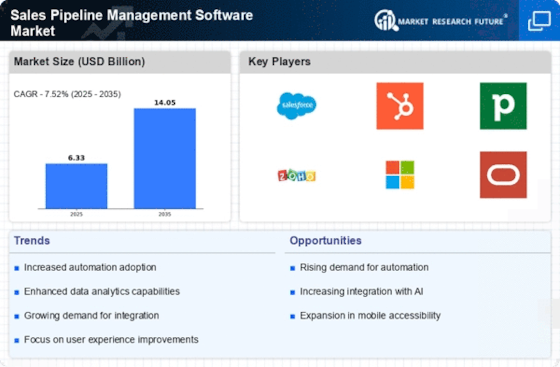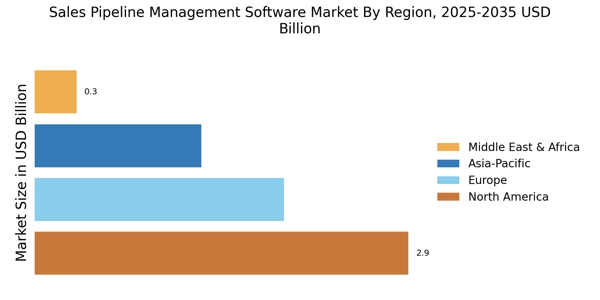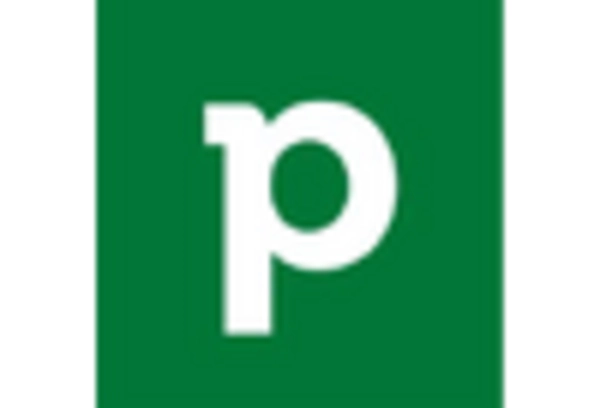Integration of Advanced Analytics
The integration of advanced analytics into sales pipeline management is becoming increasingly prevalent within the Sales Pipeline Management Software Market. Organizations are leveraging data analytics to gain insights into customer behavior and sales trends. This analytical approach allows businesses to make informed decisions, optimize their sales strategies, and improve forecasting accuracy. Recent findings indicate that companies utilizing advanced analytics experience a 15% increase in sales forecasting accuracy. As the importance of data-driven decision-making continues to grow, the Sales Pipeline Management Software Market is likely to expand, driven by the demand for sophisticated analytical capabilities.
Emergence of Mobile Sales Solutions
The emergence of mobile sales solutions is reshaping the Sales Pipeline Management Software Market. With the proliferation of mobile devices, sales teams are increasingly seeking tools that enable them to manage their pipelines on-the-go. Recent data reveals that mobile sales applications have seen a 40% increase in adoption among sales professionals. This trend underscores the necessity for software that provides real-time access to sales data and updates, facilitating timely decision-making. As mobile technology continues to advance, the Sales Pipeline Management Software Market is likely to experience robust growth, driven by the demand for mobile-friendly sales management solutions.
Increasing Demand for Sales Efficiency
The Sales Pipeline Management Software Market experiences a notable surge in demand as organizations strive to enhance sales efficiency. Companies are increasingly recognizing the importance of streamlined sales processes to maximize revenue potential. According to recent data, organizations utilizing sales pipeline management tools report a 20% increase in sales productivity. This trend indicates a growing reliance on software solutions that facilitate better tracking of leads and opportunities, ultimately leading to improved conversion rates. As businesses seek to optimize their sales strategies, the Sales Pipeline Management Software Market is poised for continued growth, driven by the need for effective sales management solutions.
Rising Adoption of Cloud-Based Solutions
The Sales Pipeline Management Software Market is witnessing a significant shift towards cloud-based solutions. This transition is largely attributed to the flexibility and scalability offered by cloud technologies. Recent statistics suggest that over 60% of organizations have adopted cloud-based sales management tools, enabling remote access and collaboration among sales teams. The ability to access data from anywhere enhances decision-making and responsiveness to market changes. As more businesses embrace digital transformation, the demand for cloud-based sales pipeline management software is expected to rise, further propelling the growth of the Sales Pipeline Management Software Market.
Focus on Customer Relationship Management
The Sales Pipeline Management Software Market is significantly influenced by the growing emphasis on customer relationship management (CRM). Businesses are increasingly recognizing that effective sales pipeline management is closely tied to maintaining strong customer relationships. Recent surveys indicate that 70% of sales professionals believe that CRM integration enhances their ability to manage leads effectively. This focus on CRM is driving the development of sales pipeline management tools that offer seamless integration with existing CRM systems. As organizations prioritize customer-centric strategies, the Sales Pipeline Management Software Market is expected to flourish, reflecting the importance of aligning sales processes with customer needs.

















